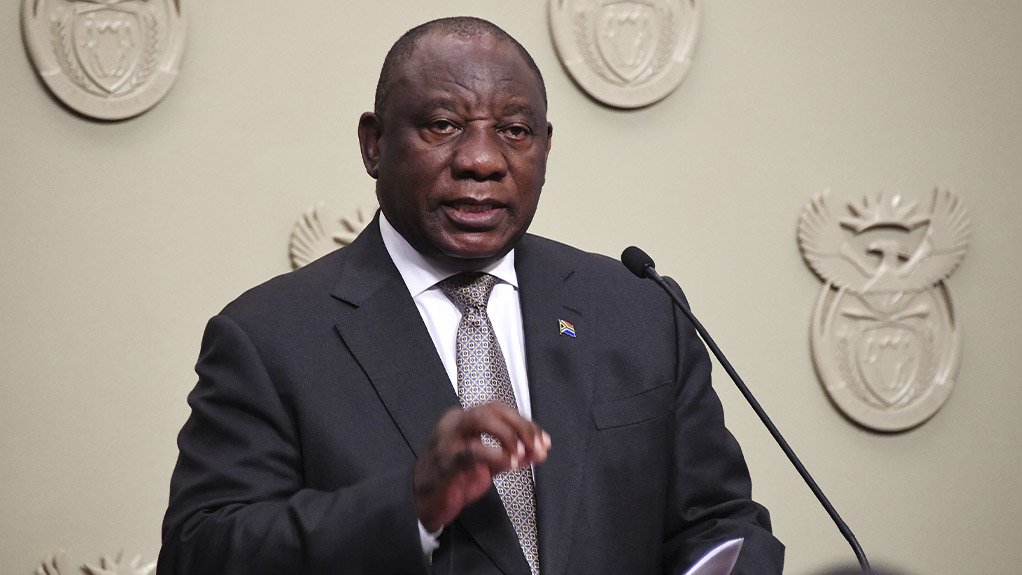/ MEDIA STATEMENT / The content on this page is not written by Polity.org.za, but is supplied by third parties. This content does not constitute news reporting by Polity.org.za.
Dear Fellow South African,
Over the last few years, South Africans have had to contend with slow growth and rising unemployment. This has been worsened by a devastating pandemic, an attempted insurrection unrest in July last year, and, earlier this year, severe floods in parts of KwaZulu-Natal, Eastern Cape and North West.
Amidst all this, the energy crisis has loomed large, causing damage to the economy and hardship for households and businesses.
Yet, even amidst these formidable challenges, our society and economy has proven to be resilient. And indications are that our economy is showing encouraging signs of recovery.
The latest employment figures, in particular, give us grounds for cautious hope.
Statistics South Africa recorded a decline in the unemployment rate for the second quarter of 2021. Significantly, their measurement shows that the actual number of people employed rose from 14.5 million people in the fourth quarter of 2021 to 15.5 million in the second quarter of 2022. This is an encouraging increase of much-needed jobs over the first half of this year.
These jobs were mainly created in sectors such as community and social services, trade, finance and, notably, construction.
Of course, much more needs to be done if we are to make a significant dent in our country’s high unemployment rate.
At the same time, these figures indicate that the priority areas of the Economic Reconstruction and Recovery Plan – such as mass public employment, economic reform and infrastructure development – are having an impact on job creation.
With infrastructure development and investment being one of the key priorities of our recovery plan, the growth in jobs in the construction area is particularly encouraging.
The February budget outlined a 30% increase in spending on public infrastructure over the next three years to R812 billion, compared to R627 billion over the past three years.
The Construction Industry Development Board recently noted that there has been an increase in infrastructure projects driven by state-owned enterprises like Transnet and Eskom, but also in the metros and through the Department of Public Works and Infrastructure.
In June, this year we saw our economy return to pre-pandemic growth levels owing to a fairly positive GDP outcome in the first quarter of the year. Naturally the objective is to move significantly off this low base, which is why we are continuing with our focus on structural reforms that drive growth.
Last week, government published a proposed amendment to remove the licensing threshold for electricity generation facilities and encourage investment in larger, utility scale projects to rapidly add new generation capacity to the grid. This represents a major milestone in our efforts to transform the country’s energy landscape, a critical prerequisite for economic growth and attracting investment.
Since the national energy plan was announced in July this year, we have been working as government in partnership with various stakeholders on implementation and policy reform.
Since we raised the licensing threshold to 100 megawatts in June 2021, more than 500 MW of private renewable power generation projects have been registered, with a pipeline of over 6,000 MW of projects at various stages of development.
The structural reform process continues to register progress in support of economic growth and attracting investment.
Economic growth cannot be realised and jobs cannot be created without undertaking the difficult but necessary structural reforms that will improve the business and investment climate. This is government’s role.
However for success to be guaranteed, we will need to forge consensus between business, labour and civil society not only on the reforms that are needed, but on the trade-offs that are necessary to achieve our goals.
While our economy takes time to recover and our reform programme is implemented, we will continue to pursue a range of complementary interventions to support job creation. Alongside the measures that supports private sector growth, we will expand public employment and ensure social protection for the most vulnerable.
The growth in employment, together with other promising signs of recovery, should encourage us to push ahead with the reforms and implement our Economic Reconstruction and Recovery Plan to unlock investment and growth. It should encourage all social partners to work more closely and with greater urgency and purpose to achieve faster growth and create more jobs.
With best regards,
Issued by President Cyril Ramaphosa
EMAIL THIS ARTICLE SAVE THIS ARTICLE ARTICLE ENQUIRY
To subscribe email subscriptions@creamermedia.co.za or click here
To advertise email advertising@creamermedia.co.za or click here











